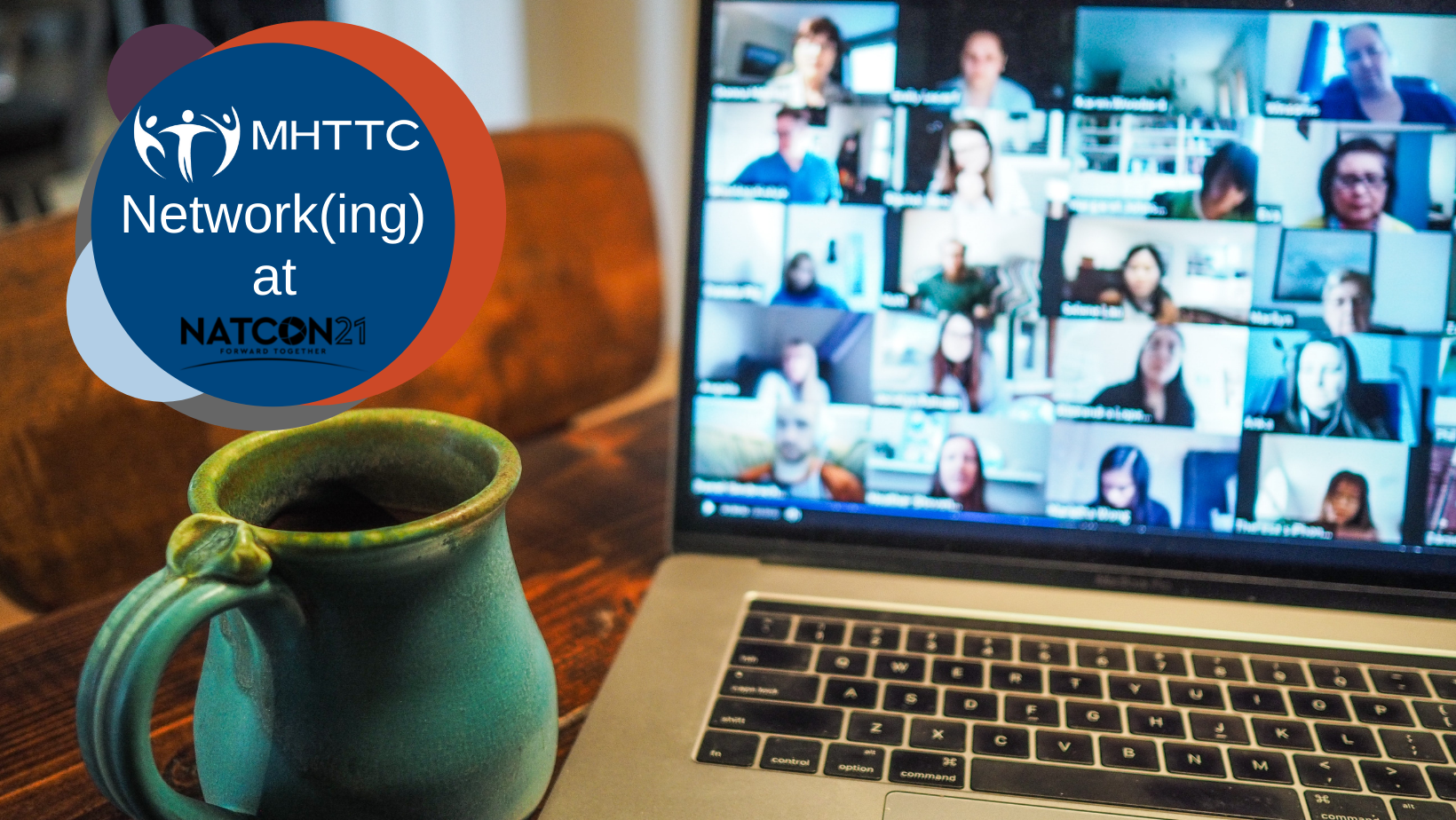Home > MHTTC Network(ing) at NATCON 2021

Now more than ever, solutions and strategies are needed to meet the growing demand for mental health services in communities across the country.
We are happy to share that we will be networking, presenting, and sharing our free resources at NatCon21, an exclusive virtual learning opportunity the National Council for Behavioral Health is hosting from May 3-5.
As the largest conference in behavioral health care, NatCon21 offers next-level learning, a front-row seat to powerful presentations and the chance to network with 6,000+ peers nationwide.
Please see below for a list of our Network's presentations taking place at NatCon21.
Tuesday May 4, 2:15-2:45pm ET
Speakers: LaVonne Fox, PhD, OTR/L, Technical Trainer, Mountain Plains MHTTC, Sarah Nielsen, PhD, OTR/L, Technical Trainer, Mountain Plains MHTTC
Contributing: Thomasine Heitkamp, Co-Director, and Shawnda Schroeder, Co-Director, Mountain Plains MHTTC
The circle is sacred in many U.S. Indigenous cultures. It symbolizes wholeness and represents the cycles of life. It represents strength, unity and balance. It has no beginning or ending. If damage occurs to one piece of the circle, it affects other parts. When there is imbalance, there is emotional and physical illness. The presentation will introduce a product for K-12 teachers and preservice teachers, Strengthening Resilience: Promoting Positive School Mental Health among Indigenous Youth. This tool addresses the role of trauma to assist educators and providers to advance a greater understanding of the cultural context of Indigenous youth.
Wednesday May 5, 1:15– 2:00 PM ET
Heather Gotham, PhD, Director, MHTTC Network Coordinating Office
People with behavioral health disorders face major gaps in service delivery and implementation science has the potential to address these gaps. This cross-disciplinary field examines the factors that help or hinder implementing an innovation or evidence-based practice and can accelerate how quickly and seamlessly new practices are embedded. We will define key constructs in implementation research and practice, describe the implementation gap and its effects on behavioral health service delivery and introduce key strategies from implementation science to assist organizational leaders in efficiently changing practice to promote the best patient outcomes.
Learning Objectives
Wednesday May 5, 2:15– 2:45 PM ET
Speakers: Ann Murphy, PhD, CPRP, Director, Mountain Plains MHTTC, Joni Dolce, MS, CRC, Assistant Professor, Rutgers, School of Health Professions
The COVID-19 pandemic significantly impacted delivery of behavior health services in New York and Puerto Rico. We will share the challenges faced and adaptations made by behavioral health providers in and compare and contrast the responses from these two very different locations and explore the implications of the challenges and the associated adaptations made in the context of future service delivery and the sustainability of new service formats. The future potential of the adaptations will be considered, as well as the significant needs of the behavioral health system and those participating in its services that were highlighted by the pandemic.